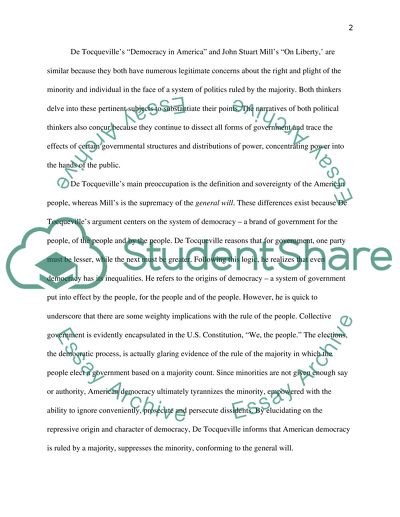Cite this document
(“Alexis de Tocquevilles Democracy in America (1835, 1840) and John Essay”, n.d.)
Retrieved from https://studentshare.org/history/1393490-alexis-de-tocquevilles-democracy-in-america-1835-1840-and-john-stuart-mill-on-liberty-1859
Retrieved from https://studentshare.org/history/1393490-alexis-de-tocquevilles-democracy-in-america-1835-1840-and-john-stuart-mill-on-liberty-1859
(Alexis De Tocquevilles Democracy in America (1835, 1840) and John Essay)
https://studentshare.org/history/1393490-alexis-de-tocquevilles-democracy-in-america-1835-1840-and-john-stuart-mill-on-liberty-1859.
https://studentshare.org/history/1393490-alexis-de-tocquevilles-democracy-in-america-1835-1840-and-john-stuart-mill-on-liberty-1859.
“Alexis De Tocquevilles Democracy in America (1835, 1840) and John Essay”, n.d. https://studentshare.org/history/1393490-alexis-de-tocquevilles-democracy-in-america-1835-1840-and-john-stuart-mill-on-liberty-1859.


